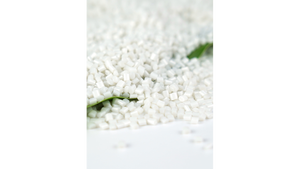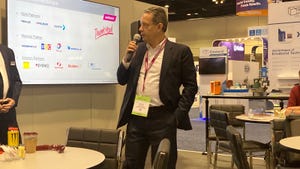A university for moldmakers - in India
June 1, 1997
There is a severe shortage of moldmakers in North America. Organizations like the American Mold Builders Assn. (AMBA) have gone to great lengths to publicize the rewarding career opportunities moldmaking offers the young. And industry/academic teams like D-M-E and Ferris State have invested in creating programs to help train new tool builders. Yet demand still far exceeds supply. In another part of the world, in India, a successful institution exists that supplies the growing Indian industrial base and the world market with new moldmakers. It presently has 800 students.
Though it was started in 1963 with the support of the Indian national and state governments and development agencies working with the government of Switzerland, this institution has become self-reliant in a very practical manner - one that also could be used in North America. The lion's share (rather, the tiger's share) of this institution's financial support now comes from onsite custom molding, custom moldmaking, and contract manufacturing.
It's called the Nettur Technical Training Foundation (NTTF). NTTF Industries Ltd. is its manufacturing operation. NTTF's campus-like setting - complete with youth hostels and a cafeteria - sprawls over the Peenya Industrial Area in Bangalore, the largest industrial park in India, possibly the largest in Asia. Courses also are conducted at two other training centers. The core areas of training are in the fields of tool and die making, electronics, technical skills, tool design (postdiploma level), tool engineering (postgraduate level), and computer applications. Other courses include informal training programs, apprenticeship training programs, and evening courses in further education programs. Special training in courses tailor-made for specific industries also are available. All certificates and diplomas NTTF issues are recognized by industries in India and in other parts of the world.
At one center, training programs in technical skills and tool and die making are held for rural and disabled youth. NTTF even trains new entrepreneurs in courses comprised of 40 percent technical training and 60 percent management skills - everything from technical math, SPC/SQC, CNC machining, CAD, TQM, kaizen, JIT, QFD, and QMC to site selection, project appraisal and planning, modernization, materials, financial assistance, and personnel management.
Practice and Theory
The tool and die courses are a blend of practice and theory. The goal is to equip trainees with useful knowledge they can use immediately in industry. Basic training is offered free of charge. Small fees are required for the cafeteria services. Applicants must have a minimum of 10 years of formal education, at least a high school degree, and must pass an entrance exam. Preference for admission is given to meritorious students hailing from weaker economic areas.
The tool and die making diploma course is a three-year program followed by one year of in-plant training. During the course, trainees learn to design and manufacture complex tools, including press tools, plastics molds, diecasting dies, jigs and fixtures, and gauges. Advanced postgraduate courses in tool engineering and design are available, as are two-year certificate courses in moldmaking. For the final diploma-course exam, trainees must fully assemble a mold and successfully run it in a machine at NTTF Industries, all within 24 hours.
N. Reguraj is managing director. A toolmaker by trade who apprenticed under an American expert, Reguraj started India's Tool and Gage Manufacturing Assn., an organization somewhat similar to AMBA, six years ago. When he came to NTTF there were 60 students. As mentioned above, there are 800 today.
| Training activities at NTTF are supported by on-site custom molding, moldmaking, and contract manufacturing. Customers include Maruti-Suzuki, India's number one carmaker. |
What Reguraj brought to the table was the concept of supporting the training program through manufacturing. He felt the various governmental organizations backing NTTF could one day withdraw their support for any number of economic or political reasons. NTTF today is autonomous and is commercialized. Average annual sales for NTTF Industries is about $8 to $9 million. And, three years ago, NTTF went public. A trust holds the majority of shares and training is supported by that trust.
Reality-based Training
A tour of NTTF's impressive facilities in Bangalore is an enlightening experience. NTTF Industries is ISO 9001 and 9002 certified, and it's currently pursuing QS 9000. Its existing design center, which supports its manufacturing activities, is well equipped with CAD/CAM and CAE systems, running software from the likes of Cammand, AutoCAD, Virtual Engineer, and Moldflow. A full 90 percent of the design center's staff is NTTF grads. The design center turns jobs around from industrial designs in 20 days maximum, following established procedural details. By the second trial, 95 percent of all critical dimensions are achieved. Tolerances are generally held to within +/- 20 m. Prototyping presently is in ABS and steel tools.
Molds in Action
NTTF's Components Manufacturing Div. houses 10 hydraulic molding machines, ranging from 30 to 180 metric tons, mostly from Indian machinery OEM D.G.P. Windsor India Ltd. (Mumbai). Auxiliaries are from several sources, including dryers from Bry-Air (India) Pvt. Ltd. (Delhi). Its staff of 75 also is made up mostly of NTTF grads. Molds, built in-house for customers, are backplated for QMC. Use of hot runner systems from D-M-E, Incoe, and Mastip is prevalent. NTTF runs materials such as ABS, acetal, PC, and PP. Some 50 to 60 percent of its production is for India's growing automotive market sector. Contract-manufactured directional switch assemblies for customers like Maruti-Suzuki, India's leading carmaker, are its main product line.
NTTF produces about 38,000 of these modules every month to working tolerances ranging from within +/- .01 to .005 mm. Reject rates range from .7 percent to .4 percent. Production is supported by a fully equipped quality assurance room, housing such devices as a CEJ computerized coordinate measuring machine, a digital Nikon profile projector, and a Trimos height measurer. Its toolroom is equally well- equipped with such sophisticated equipment as Charmilles EDMs, Deckel universal milling and boring machines, Moore jig grinders, and Jung precision and surface profile grinders. Construction has begun on a new $280,000, 18,000-sq-ft design center. NTTF is purchasing three seats each of Pro-Engineer and I-Deas, one seat of Unigraphics, and one seat of Computervision. The new center also will have a selective laser sintering system for rapid prototyping. NTTF is making these investments to ensure the future success of its manufacturing and training activities.
You May Also Like



